Road to recovery: As more Wilmington residents seek treatment, police see fewer overdoses
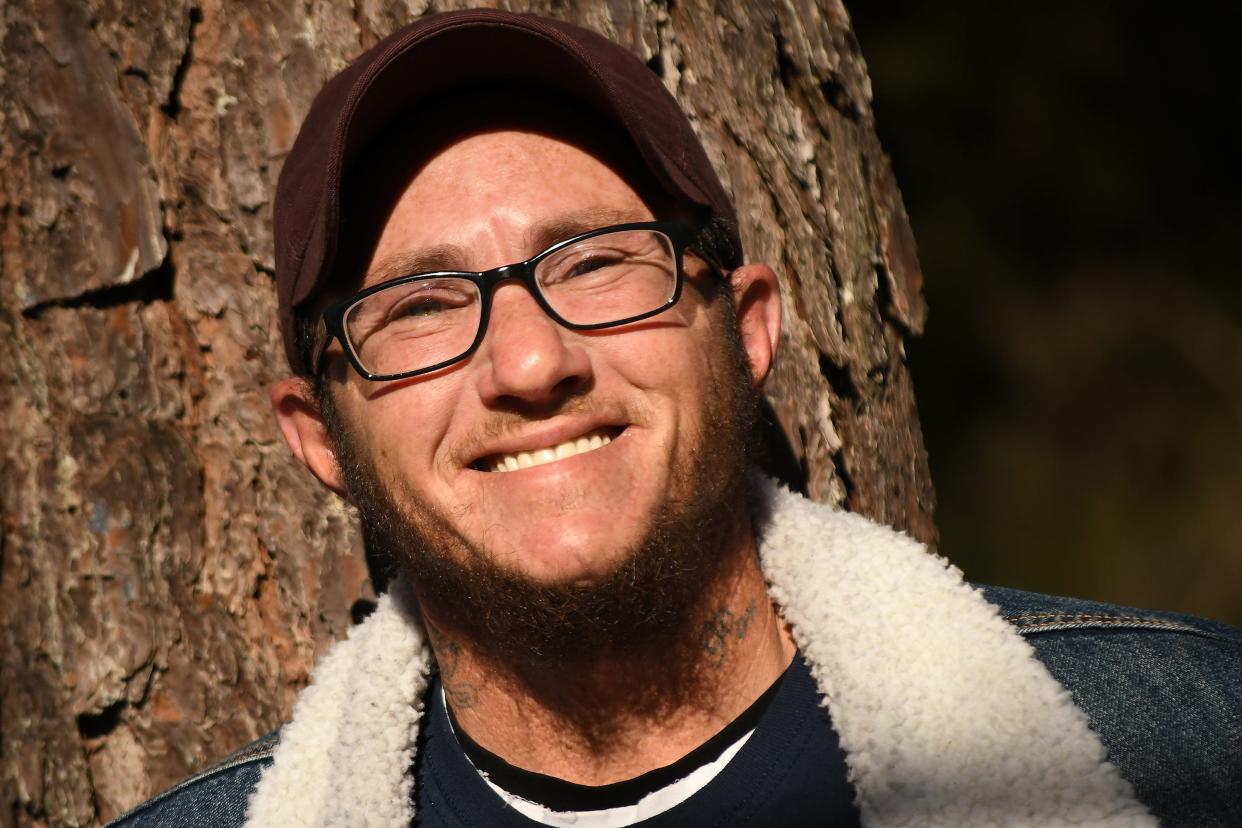
“I wanted to die; I just couldn’t figure out how to stop the cycle. I've had four near fatal overdoses and three near fatal suicide attempts.”
That's how Lona Currie, a resident of Brunswick County for nearly 14 years, described his battle with addiction.
Suffering trauma and abuse in his early childhood, Currie said he began drinking alcohol at age 11. From there, his substance abuse escalated with the use of marijuana and other substances.
After a tonsil surgery at age 19, Currie was prescribed opioid medications by a doctor, marking the onset of his battle with opioid addiction -- which lasted about 22 years.
He's now in year 10 of recovery and works as an advisory board member with Coastal Horizons Center, as a podcast host, as a writer and as a recovery mentor.
"If I can, I promise anybody can," Currie said about recovering.
Currie acknowledges he is not alone in his experiences, and though Currie’s personal journey is distinct, he is one of millions of Americans who have struggled with substance abuse.
The Substance Abuse and Mental Health Services Administration (SAMHSA) recently reported that more than 46 million Americans ages 12 and older suffered from a substance abuse disorder in 2021. Data from the American Medical Association indicates that more than 109,000 people died from a drug-related overdose in 2022.
While Wilmington is not immune to this national epidemic, data provided by the Wilmington Police Department indicates that the city saw a decline in overdose reported deaths in 2023 as compared to 2022. At the same time, however, treatment centers across Wilmington witnessed a rise in patients seeking assistance for substance abuse.
Substance abuse and overdose rates in Wilmington
Recent statistics paint a seemingly paradoxical picture of substance abuse rates locally.
In 2023, the Wilmington Police Department witnessed a noteworthy 9.3% decline in overdose incidents and a 42.55% decline in overdose deaths in comparison to the year prior.
WPD provided the following data:
2022: WPD officers addressed 398 overdose incidents, 47 overdose deaths.
2023: WPD officers addressed 361 overdose incidents, 27 overdose deaths.
While the police department saw a decline in overdose reports and deaths in 2023, local medical facilities and substance abuse care providers report an increase in patients seeking care and treatment.
The Wilmington Treatment Center, which provides treatment to people 18 years or older who are struggling with addiction and co-occurring disorders, is one example.
"One of the top recovery facilities” in the state, the Wilmington Treatment Center attracts patients not only from Southeastern North Carolina, but also statewide, and even nationwide, said Victoria Sowers, director of admissions. Despite this broad geographic range, the majority of patients are primarily from Southeastern North Carolina.
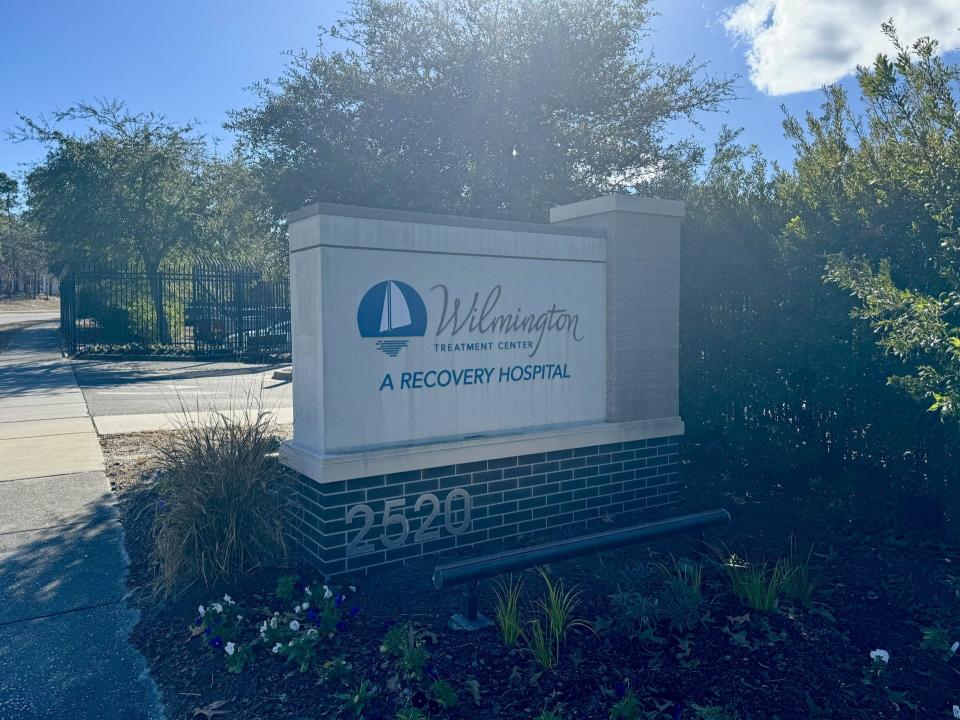
“Admissions into treatment for our treatment center are up 17% from last year, with over 3,700 patients entering treatment,” Sowers said.
Coastal Horizons Center, a private nonprofit offering substance use, mental health, and care integration services, reported a similar trend. The organization is focused on providing “prevention, outpatient treatment, and health-related services” to people across Southeastern North Carolina, with a “primary emphasis” placed on New Hanover, Brunswick and Pender counties.
Coastal Horizons saw a 7% growth in the number of people served from the tri-county region.
Coastal Horizons provided the following data regarding New Hanover, Brunswick and Pender counties:
FY 2022 (July 1, 2021 – July 1, 2022): 4,199 substance abuse patients served.
FY 2023 (July 1, 2022 – July, 1 2023): 4,505 substance abuse patients served.
Additionally, emergency department visits for overdoses rose by about 20% in New Hanover County in 2023.
New Hanover County provided the following data:
2022: 149 emergency department visits for medications or drugs with dependency potential.
2023: 179 emergency department visits for medications or drugs with dependency potential.
Coastal Horizons partners with local hospitals to divert people who visit the emergency department for substance use disorders into recovery programming, said Rachel Crouse, New Hanover clinical director with Coastal Horizons.
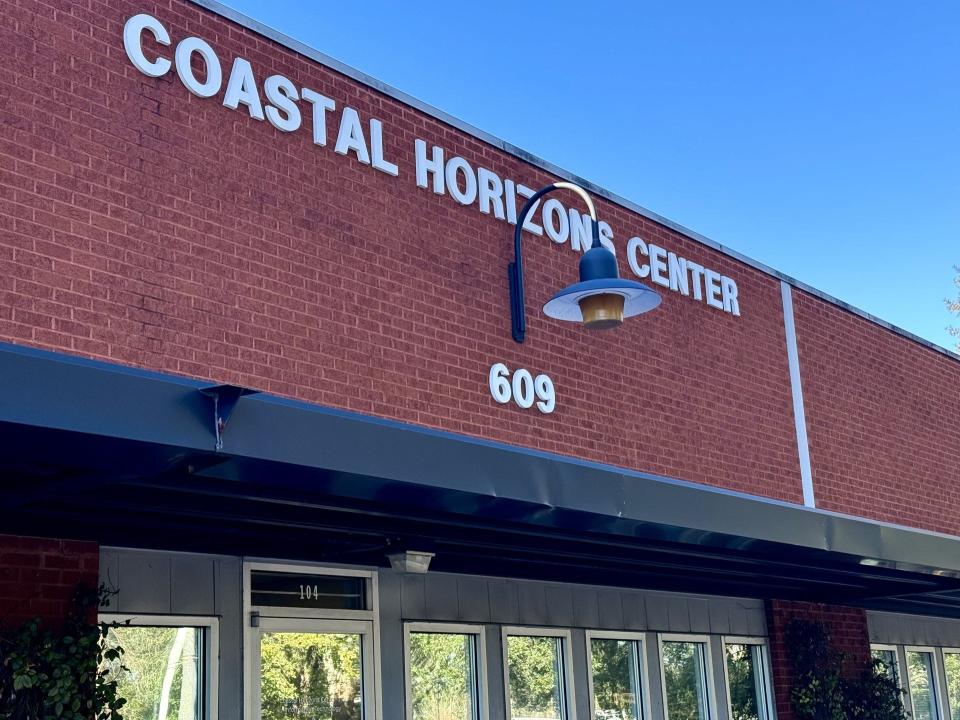
Explaining the disparity
While definitive answers cannot be concluded, it’s possible that people are opting for medical intervention earlier in overdose-related incidents, diverting cases away from law enforcement, yet increasing emergency department visits.
Officials suggest that this trend could be a result of heightened awareness about the dangers of substance abuse, improved access to treatment, and expansion of treatment options.
“I think there are more resources that are out there,” said Lt. Greg Willett, public information officer with the police department. “There has been more of what I perceive, and what the (police department) perceives, (as a) national awareness, and that includes the Wilmington area.”
Crouse agreed, stating that the decline in overdose deaths may partially be attributed to an increased availability of treatment options.
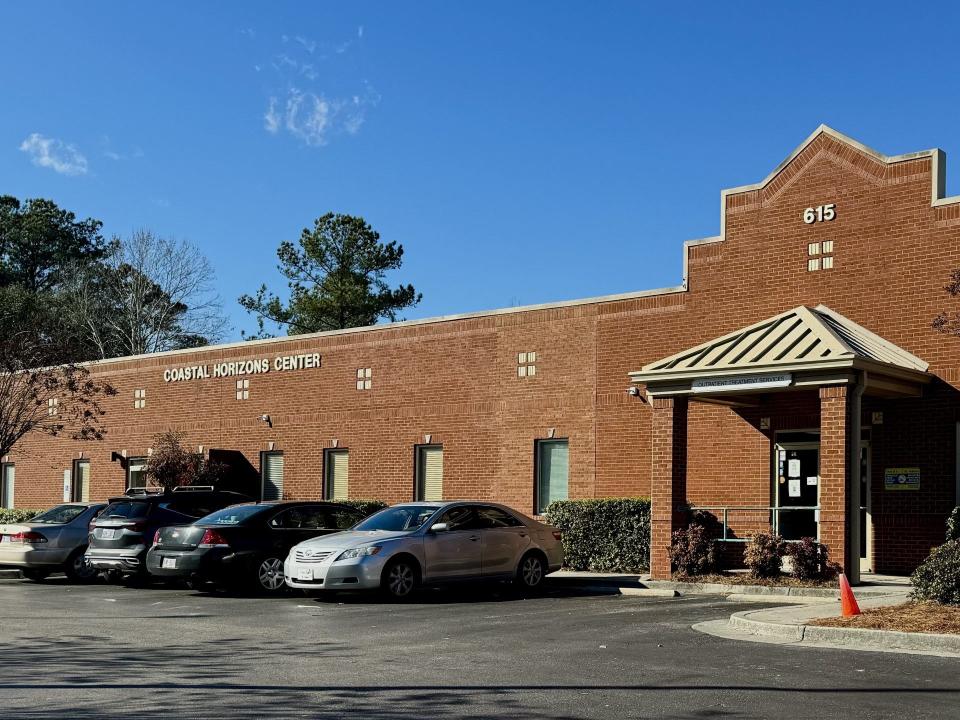
“I think there’s different ways now to access those resources where it used to go through WPD and EMS,” Crouse said.
Additionally, Crouse mentioned other alternative treatment avenues that now appear to be more readily accessible.
“Peer support has been on the rise,” Crouse said, adding that Coastal Horizons and other substance abuse centers employ the use of peer support specialists, or people “with lived experience that can reach out to (others) to provide hope (and) access to care.”
The pandemic altered healthcare and treatment for substance abuse, Crouse said. “We’ve learned how to use telehealth in a way that’s effective, we’ve learned hours that work, we’ve had some kind of shifts in what that looks like for people,” she added.
The Wilmington Treatment Center said increased access to Narcan has also led to overdose decline. Sowers labeled the rehab center as “pro-Narcan” and emphasized the benefit of having the emergency treatment option “available anywhere and everywhere.”
Fentanyl causing the most concern
Law enforcement and health officials said use of fentanyl is on the rise in Wilmington and presents a substantial risk of overdose.
Fentanyl, a synthetic opioid, is up to 50 times stronger than heroin and 100 times stronger than morphine, according to the CDC.
It is “very clearly a concern in our community,” Crouse said, noting that sometimes users consume fentanyl unknowingly.
“What some may think they are buying is not always what they end up receiving,” Crouse said, adding that fentanyl is often used to cut other substances such as heroin, pressed benzodiazepines, and methamphetamine sold by street dealers.
The uptick likely occurred for two reasons, Crouse said.
First, fentanyl is lucrative in the illegal drug market.
“If you can produce it and it’s cost effective for people to produce it, that’s going to drive that availability,” Crouse said. “Availability dictates use.”
Secondly, “it’s effective,” Crouse said.
“People who use fentanyl, whether they intend to or not, (report) that the high feels higher,” Crouse said. “If you think about the reason people use substances, that’s going to be a trigger for return to use.”
This cycle increases demand, “and now you have a market,” Crouse said.
Law enforcement officials also underscored the severity of the local fentanyl problem.
“Fentanyl seems to be taking over,” said Lt. Jay Baughman of the Vice and Narcotics Division of the New Hanover County Sheriff’s Office.
New Hanover medical facilities affirm the presence of a local opioid issue, reporting an approximately 39% increase in opioid-overdose-related emergency department visits in 2023 when compared to the year prior.
The following data was collected from the N.C. Department of Health and Human Services (NCDHHS):
2022: (January - November) 59 emergency department visits in New Hanover County for opioid overdose.
2023: (January - November) 82 emergency department visits in New Hanover County for opioid overdose.

What could Wilmington do better?
Wilmington can strengthen its efforts in substance abuse awareness and overdose prevention by improving treatment processes, dismantling barriers limiting access to treatment, and combating stigma associated with addiction.
Treatment for addiction should focus more heavily on addressing the mental and emotional health of patients, Currie said.
“If we make the medicine the least important part of somebody’s recover journey, I truly and honestly believe that we can change that person’s life and help ... the sinking anchor of addiction,” Currie said.
While medication-assisted treatment (MAT) can be crucial for the treatment of substance abuse disorders, dosing of these medications should be more effectively regulated by the state, Currie said.
Additionally, barriers that prevent people from accessing treatment for their substance use disorders need to be addressed.
Financial barriers present a significant challenge. In numerous treatment programs overseen by Crouse at Coastal Horizons, many people have difficulty in obtaining insurance or being able to afford copays, she said.
Unreliable access to transportation, language barriers, and numerous other obstacles can also hinder patient access to recovery programs, Crouse said.
Lastly, “I think the biggest thing is stigma,” Crouse said, adding that societal perception surrounding substance abuse and addiction can prevent individuals from seeking treatment.
Crouse urged community members to be compassionate, referring to addiction as a “chronic medical disease."
Currie agreed, adding that increased empathy and genuine support for people seeking treatment would immensely mitigate stigma.
“I just want to make recovery the epidemic,” Currie said. “At some point, we (have to) stop talking about change and we (have to be) change.”
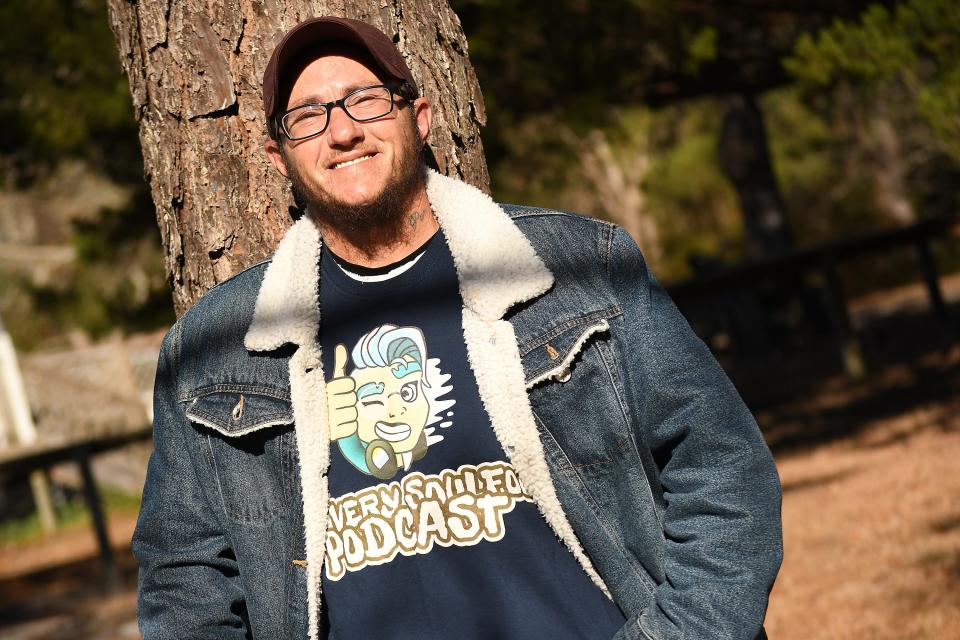
What resources are available?
Coastal Horizons Center offers “services from a menu of options” that people can access to “meet their needs,” Crouse said. This includes but is not limited to:
peer support
group therapy
individual therapy
case management
primary care
methadone or buprenorphine treatment
Narcan distribution and training
Syringe exchange
Community residential partnerships with local recovery houses
Coastal Horizons also partners with WPD and other community organizations in an initiative known as Law Enforcement Assisted Diversion (LEAD).
The LEAD program offers support and treatment services to people, focusing on the fact that "narcotics use is more often a public health problem than a criminal justice problem," according to the WPD program webpage.
Additionally, the Wilmington Treatment Center refers to their programming as "all-encompassing," providing detox services, residential treatment, partial hospitalization programming, and intensive outpatient programming, according to their webpage.
A variety of other treatment centers and resources exist in the Wilmington area and can be found through these guides:
New Hanover County Treatment and Recovery Resources, https://www.nhcgov.com/817/Treatment-Recovery
North Carolina Department of Health and Human Services Substance Use Services, https://www.ncdhhs.gov/divisions/mhddsus
Brunswick County Opioid Information and Treatment Resources, https://www.brunswickcountync.gov/403/Opioid-Information-Treatment-Resources
Division on Addictions Rehab Locater, https://www.addictiontreatmentdivision.org/drug-alcohol/north-carolina/pender-county.html
This article originally appeared on Wilmington StarNews: Wilmington Police Department sees decline in drug overdose calls, deaths

